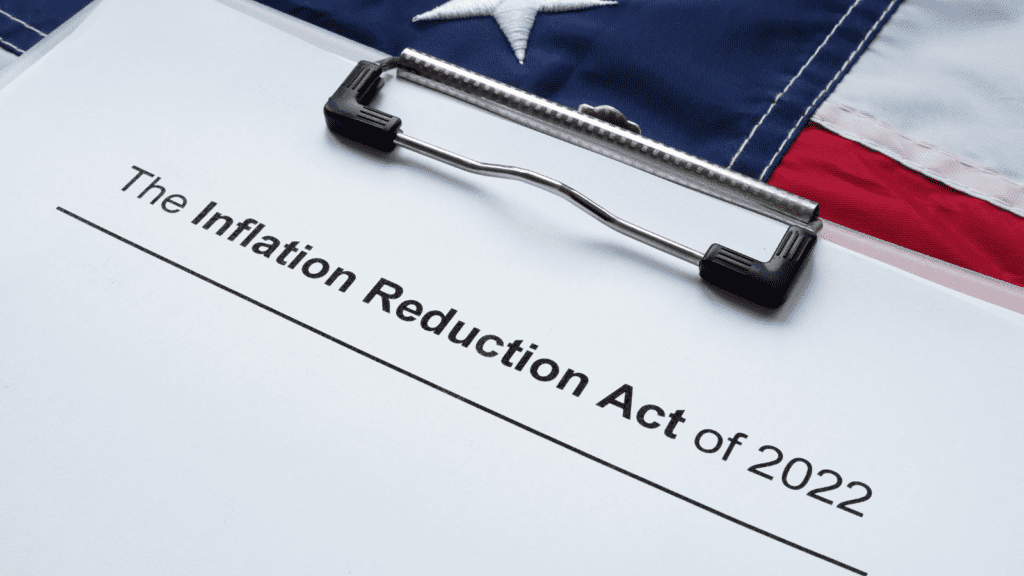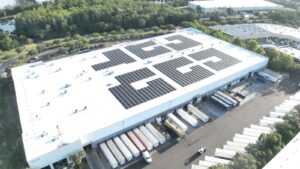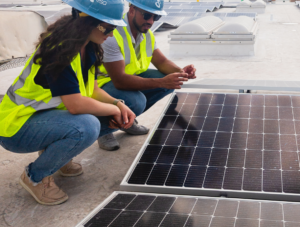The healthcare industry is striving to meet its ESG goals and be a part of the solution for climate change. Here are common questions that are asked when it comes to achieving this goal.
Who should be at the table for ESG?
Facilities Manager and Engineers
Facilities Managers and Engineers are instrumental in identifying and implementing energy-efficient measures, reducing waste, and promoting sustainable building practices. Their expertise in building operations and maintenance ensures that ESG initiatives are seamlessly integrated into the facility’s day-to-day operations.
They source the electricity bills, have a say in keeping the appearance of the location to meet their image, and provide and locate access to important infrastructure questions (ex. breaker, electrical room, and generator).
They will bring all the questions and concerns that they might have given that the panels will likely be going on top of the facility, so they’ll bring their insight that is going to be crucial during the process.
Engineers are going to have a better understanding of the conditions of the facility such as the age of the roof, how much energy the facility uses, and how much they’re spending on electricity.
They also have a say in what they want the hospital to look like with the addition of solar panels. Once they approve the design, they will send it to the board of directors and executive board to vote on it.
ESG Manager
The ESG manager brings expertise in environmental sustainability to the table. They develop and implement ESG strategies aligned with the organization’s goals, ensuring that environmental considerations are integrated into decision-making processes.
They will have a plan or roadmap that they have been working through and collaborating with the executive board, which will show what tackling ESG will look like for the organization. This could be from a carbon reduction standpoint or any sustainability standpoint.
C-Suite
The C-Suite positions are going to want to get involved early on in this process.
Chief Financial Officer
The CFO will be able to understand the metrics that the project needs to fit within the budget to make sure that the project is possible. They provide tax information to see how the tax credit incentives can be applied to the installation.
Every CFO is specific to their location, meaning that they are not the CFO of the entire organization as a whole.
Chief Executive Officer
The CEO will be able to give high-level insight and feedback on what they think needs to happen in order to make the project a success. They check to make sure the project reflects the overall mission of the company.
Both of these positions will be able to give a big-picture view of what their organization is looking for and their insight into what they want to uncover with their ESG goals.
Chief Supply Chain Officer
The CSO is involved with the facility’s emission of their entire supply chain. 40% of the healthcare industry’s scopes are scope 3 emissions, which include supplies and purchased services. It’s the CSO’s responsibility to control those emissions. This role cares more about the total emissions resulting from the facility’s supply chain.
Chief Investment Officer
The CIO is recommended to be a part of the conversation of achieving a facility’s ESG goals because they oversee what the facility invests in to make their organization better. They are going to
To generate substantial returns for the company, they employ investment strategies. Therefore, investing capital to increase their ROI from the solar system will be a top priority.
What benefits does the IRA provide for clean energy installations?
In 2022, the Inflation Reduction Act (IRA) brought some positive news for the healthcare industry. It offers many benefits that can enhance a healthcare facility’s sustainability initiatives, reduce costs, and improve patient care.

Affordability of Solar Energy
The IRA extends and expands the federal solar tax credit (ITC), providing a significant 30% tax break on the cost of installing solar panels. This tax incentive can substantially reduce the upfront costs associated with investing in solar, making it a more financially attractive option for healthcare organizations.
Reduced Energy Costs and Environmental Impact
Healthcare facilities are among the most energy-intensive buildings in the commercial sector, accounting for nearly 10% of all commercial energy use in the United States. By adopting solar power, healthcare organizations can significantly reduce their energy costs, leading to financial savings and a reduced carbon footprint.
Improved Patient Care and Well-being
The transition to solar energy can contribute to improved patient care and well-being in several ways. By reducing air pollution and greenhouse gas emissions, solar power promotes cleaner air quality, which can benefit patients with respiratory illnesses and allergies.
Also, the cost savings generated through solar energy can be reinvested into patient care services and technology upgrades.
ESG Performance and Reputation
Solar energy is a visible symbol of a healthcare organization’s commitment to sustainability and responsible business practices. This commitment can enhance the organization’s reputation among environmentally conscious patients, employees, and investors, further strengthening its brand and attracting employees with the same morals.
Leadership in Sustainability and Innovation
By working towards their ESG goals and leveraging the IRA’s incentives, healthcare organizations can position themselves as leaders in sustainability and innovation. This leadership can inspire other healthcare providers and businesses to adopt similar practices, creating a domino effect of positive environmental impact in the industry.
The Inflation Reduction Act (IRA) has paved the way for a more sustainable future for the healthcare industry. By capitalizing on the act’s incentives, healthcare organizations can reap the benefits including reduced energy costs, minimized environmental impact, enhanced patient care, improved reputation, and be seen as leaders in sustainability and innovation.
Will installing solar disrupt my facility’s operations?
The prospect of integrating solar energy into a healthcare facility’s sustainable solutions may raise concerns about potential disruptions to healthcare facility operations.
Solar development companies prioritize minimizing disruption and work closely with facility managers to ensure a seamless transition. They make sure that the project is installed at a less busy time for them to provide as little impact as possible. In most cases, solar panel installation can be completed without interrupting patient care or disrupting essential services.
Sources
https://www.facilitiesnet.com/green/article/Why-Facility-Managers-Shoul
https://www.pwc.com/us/en/industries/health-industries/library/esg-health











